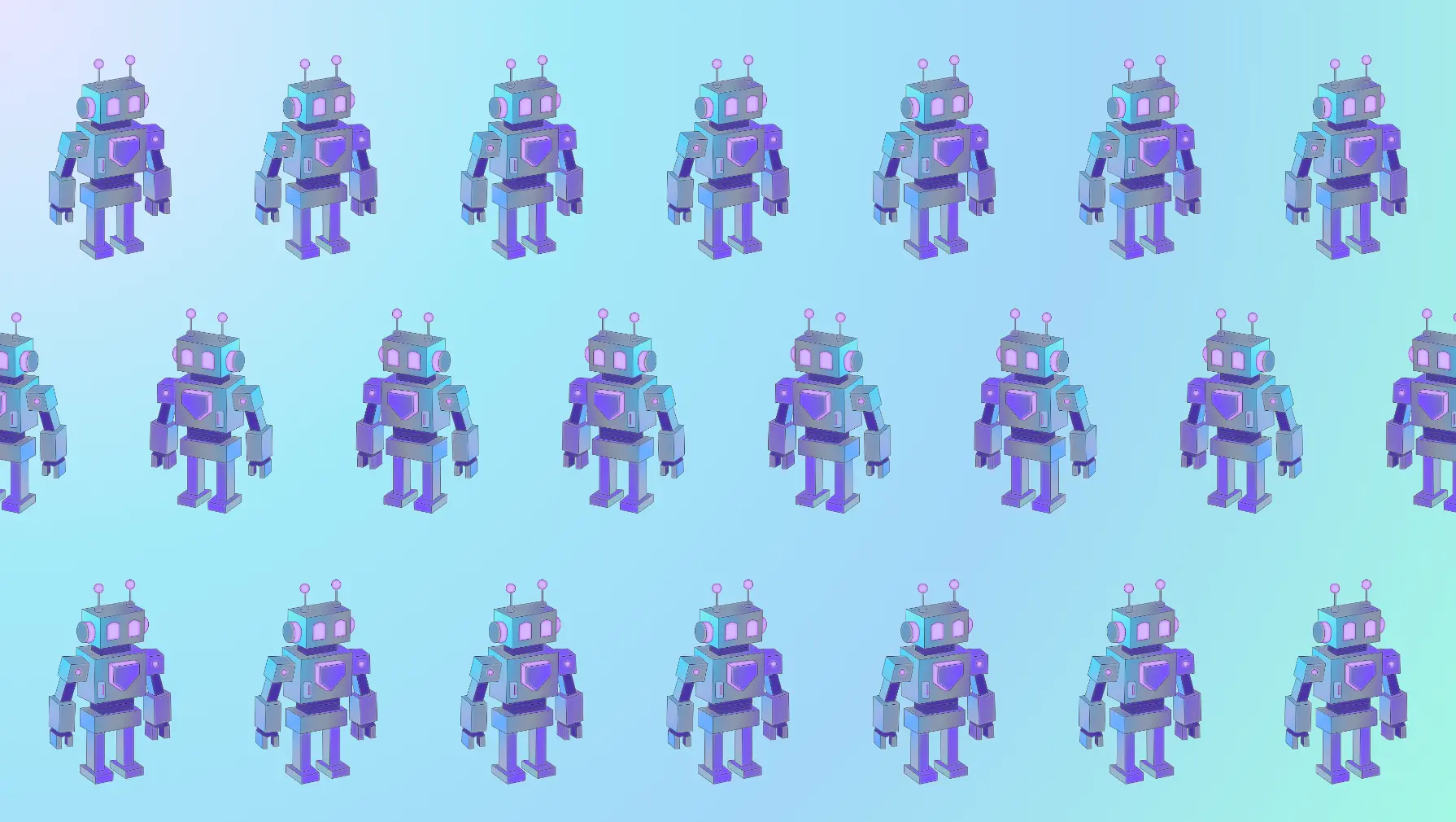In 2022, the value of Generative AI in the healthcare sector was a staggering $1.06 billion globally. By 2032, this figure is projected to skyrocket to an impressive $30.4 billion, highlighting the rapidly growing significance of GenAI in this field. According to a recent survey, 72% of healthcare leaders trust AI to automate administrative tasks, thus enabling clinicians to focus more on patient care.
Generative AI is not just transforming healthcare; it's reshaping the very fabric of patient treatment and medical research.
Generative AI Use Case for the Healthcare Sector
1. Predictive Analysis for Health Crises
Generative AI has become indispensable in predicting catastrophic health events, such as pandemics. During the COVID-19 pandemic, generative models were instrumental in analysing vast datasets to predict the spread of the virus and its impact. These models are essential in identifying new antibodies for infectious diseases, understanding their origins, and shaping data-driven responses. This approach enhances global healthcare preparedness, providing powerful AI tools for risk prediction and mitigation.
For example, a group of researchers from Harvard Medical School and the University of Oxford developed an AI tool called EVEscape, which has a generative model at its core. This tool uses evolutionary and biological information to predict how a virus could change in order to escape the immune system. During the COVID-19 pandemic, EVEscape successfully predicted the most concerning new variants. According to researchers, this tool can help in the development of vaccines and therapies for SARS-CoV-2 and other rapidly mutating viruses.
2. Personalised Treatment Protocols
GenAI is transforming the realm of personalised medicine. By analysing a patient's data, AI algorithms can generate customised treatment recommendations.
In oncology, for instance, AI can analyse a patient's genetic makeup to suggest the most effective cancer treatment, minimising side effects and improving survival rates. This level of customisation ensures more effective and cost-efficient healthcare delivery.
In the case of a cancer patient, AI can consider the patient's genetic mutations, previous treatment responses, and current health status to recommend a personalised treatment plan. This tailored approach increases the chances of successful treatment while reducing unnecessary side effects.
3. AI Agents as Healthcare Assistants
Generative AI agents in healthcare systems are improving patient interactions and care delivery. These agents, like virtual assistants, can manage appointments, provide health recommendations, and offer mental health support.
For instance, a Generative Agent can assist a patient in scheduling regular appointments for chronic conditions and provide personalised health tips based on their medical history. This technology plays a crucial role in patient care, improving adherence to treatment plans and empowering patients in their health management.
Imagine a patient with a chronic illness receiving regular reminders and support from an AI agent. This constant guidance helps the patient manage their condition effectively, reducing the risk of complications and hospitalisations.
4. Enhancing Population Health Management
Generative AI is critical in analysing large datasets to identify health trends and manage population health. For example, it can be used to predict the spread of lifestyle diseases in a certain population, enabling healthcare organisations to allocate resources more effectively and create targeted health promotion campaigns. This leads to an overall improvement in the well-being of the population and more effective healthcare outcomes.
In a city with a high incidence of obesity and related health issues, generative AI can analyse lifestyle and health data to predict future health trends. Based on these predictions, public health campaigns can be tailored to encourage healthier lifestyles and reduce the burden of chronic diseases.
5. Advancing Medical Research and Simulations
In medical research, generative AI is a game-changer. It analyses extensive biomedical data to uncover insights and facilitate hypothesis generation. In cardiology, AI can simulate heart disease progression, aiding researchers in developing more effective treatments. These simulations provide a deeper understanding of complex diseases and enable the personalisation of medicine based on individual genetic profiles.
For researchers studying Alzheimer's disease- for example, GenAI can simulate the progression of the disease in virtual models, allowing them to test potential treatments and identify novel biomarkers. This accelerates the pace of research and brings us closer to finding a cure.
Discover more GenAI use cases and applications. Download our guide to get clear, jargon-free and actionable insights on leveraging AI to gain a strategic advantage.

6. Optimising Healthcare Operations
Generative AI enhances operational efficiency in healthcare facilities. It can predict patient demand, optimise staff allocation, and manage medical supplies. For example, an AI model can forecast the need for flu vaccines in a hospital during winter, ensuring adequate supply and reducing waste. This leads to better resource management and improved patient care.
In a busy hospital, AI can predict the influx of patients during peak flu season. It can adjust staffing levels accordingly and ensure that the hospital has sufficient vaccines on hand to meet the increased demand, ultimately improving patient satisfaction and safety.
7. Revolutionising Medical Note taking
AI simplifies medical documentation by digitising notes and organising data efficiently. In a busy clinic, AI can transcribe doctor-patient conversations in real-time, ensuring accurate and comprehensive medical records. This automation reduces the time spent on administrative tasks, allowing healthcare professionals to focus more on patient care.
Consider a general practitioner who uses GenAI-powered speech recognition software during patient consultations. As the doctor speaks, the software converts their words into text, creating a detailed and accurate medical record without the need for manual note-taking.
8. Revolutionising Drug Discovery and Development
The role of GenAI in drug discovery and development cannot be overstated. GenAI-driven platforms can expedite the drug development process, swiftly identifying promising candidates for clinical trials and predicting potential side effects. This significantly reduces the time and cost associated with drug development, bringing life-saving medications to patients faster.
Consider the development of a new medication for a rare genetic disorder. Generative AI can analyse vast genetic databases to identify potential drug candidates that target the specific genetic mutations responsible for the disease. This targeted approach accelerates drug development and brings hope to patients with limited treatment options.
How to safely integrate GenAI into Healthcare Organisations
Ensuring the safe and secure integration of Generative AI into healthcare organisations is paramount. As patient data is at the heart of healthcare, robust cybersecurity measures must be in place to protect sensitive information. Advanced encryption, authentication protocols, and constant monitoring are essential to safeguarding patient records and AI-driven insights. Compliance with data privacy regulations such as GDPR in Europe or HIPAA in the United States is non-negotiable.
Moreover, healthcare professionals and AI developers must collaborate closely to establish ethical guidelines for AI use, ensuring that AI systems uphold the highest standards of patient confidentiality, respect, and trust. The responsible integration of Generative AI not only advances medical practices but also guarantees that patients' privacy and security remain sacrosanct in this transformative era of healthcare.
Now that you've inspired by the possibilities GenAI can bring to Healthcare, you can start working on a Generative AI Business Case to convince your board and justify the investment. Here is a free editable template.
.webp)
The future of healthcare, driven by Generative AI, promises a more personalised, efficient, and proactive approach to health and wellness. As we embrace this digital transformation, the potential for improved patient outcomes and a more efficient healthcare system becomes increasingly evident.
Generative AI is not just an emerging technology; it is a paradigm shift, heralding a new era in healthcare that prioritises patient-centric, data-driven, and efficient medical practices. With its diverse applications and remarkable potential, the healthcare industry stands on the brink of a transformative era, where AI and human expertise come together to provide the best possible care for patients.
Getting Started with End-to-End AI Transformation
Partner with Calls9, a leading Generative AI agency, through our AI Fast Lane programme, designed to identify where AI will give you a strategic advantage and help you rapidly build AI solutions in your organisation. As an AI specialist, we are here to facilitate the development of your AI strategy and solutions within your organisation, guiding you every step of the way:
- Audit your existing AI capabilities
- Create your Generative AI strategy
- Identify Generative AI use cases
- Build and deploy Generative AI solutions
- Testing and continuous improvement
Learn more and book a free AI Consultation
*The cover image of this article is generated by AI




